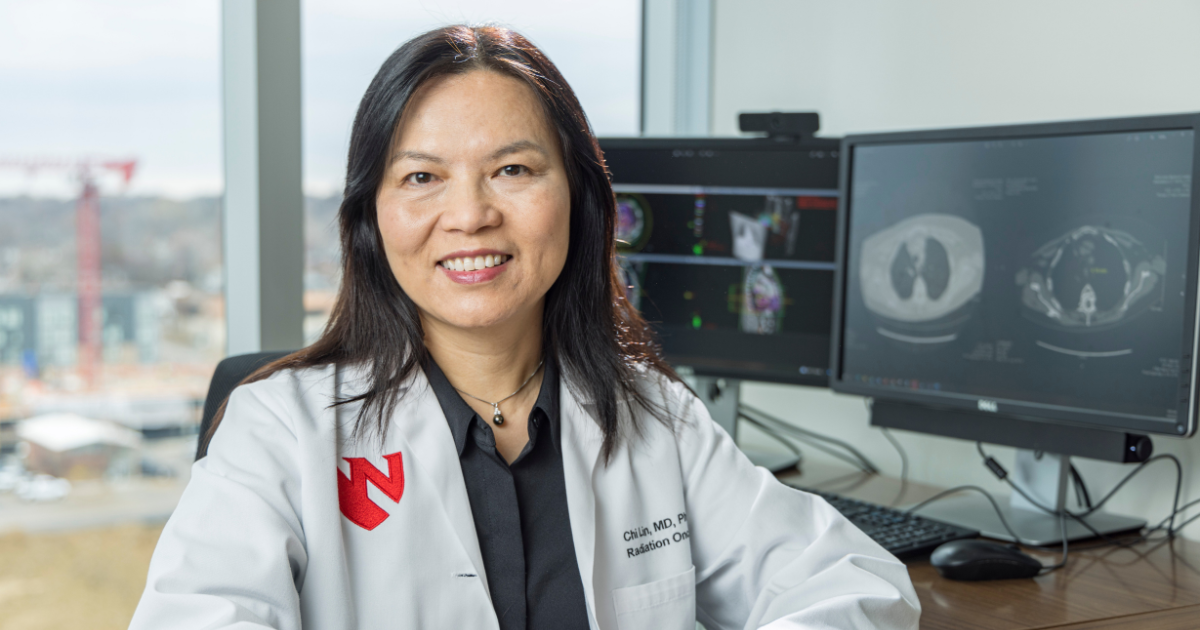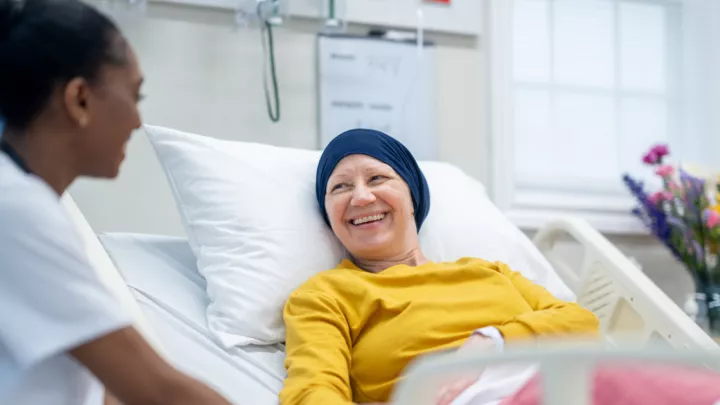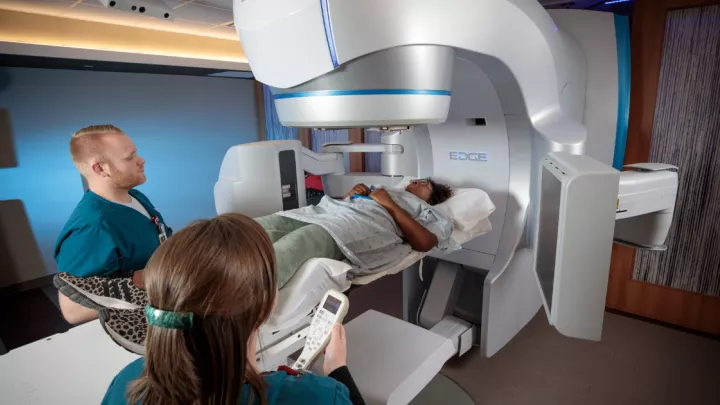Drug being tested to address side effects of cancer treatment

Researchers are studying a medication to explore its potential to reduce the side effects of radiation and chemotherapy in cancer treatment.
The drug, BMX-001, is currently being studied in clinical trials for both anal and rectal cancer patients undergoing curative treatment. Chi Lin, MD, PhD, is a radiation oncologist who is leading the trials.
“BMX-001 is a drug that can protect normal tissue from radiation-induced damage while not protecting cancer cells in chemo and radiation therapy patients,” Dr. Lin says. “In the lab, we have seen that it's actually enhancing the chemo and radiation killing of cancer cells.”
Early results
The trials aim to lower the often severe side effects of radiation treatment for anal and rectal cancers. These can include diarrhea, skin breakdown and urinary discomfort. Long-term effects like rectal bleeding and pain are also common.
Initial results from the anal cancer trial, which has enrolled 21 out of 24 planned patients, are encouraging. Citing current data, Dr. Lin reports a reduction in severe toxicity, known as grade 3, compared to historical data.
“Our grade 3 or above toxicity is only 14%, compared to 21% and 36% in previous trials,” Dr. Lin says.
A multidisciplinary effort
The rectal cancer trial opened last year and aims to enroll 56 patients. Participants are randomized to receive either standard treatment or standard treatment plus BMX-001.
The current standard approach for rectal cancer, known as total neoadjuvant therapy, combines chemotherapy and radiation before surgery. The rectal cancer trial is investigating whether BMX-001 might impact the side effects of this intensive pre-surgical treatment.
The trial exemplifies a multidisciplinary approach to cancer treatment, integrating radiation therapy, chemotherapy and surgery. Dr. Lin emphasizes the importance of this collaborative effort.
“For a lot of tumors, we need all three things,” she says. “We work with surgeons and medical oncologists. A lot of chemo and radiation done prior to surgery is trying to help surgeons do a better job.”
Translational research
The research study exemplifies translational medicine, bringing laboratory discoveries directly to patient care. Dr. Lin collaborates closely with UNMC researcher Rebecca Oberley-Deegan, PhD, sharing clinical samples and data to further understand the drug’s mechanisms.
“We are translating the lab science to benefit the patient in the clinic,” Dr. Lin explains.
The potential applications extend beyond rectal and anal cancers. Dr. Lin suggests the drug could be useful in treating other cancers affecting the pelvic area, such as prostate or gynecological cancers. This, however, would require separate clinical trials.
As the trials continue, Dr. Lin emphasizes the importance of patient participation. “We hope patients will consider being part of this research,” she says.
Clinicaltrials.gov NCT05254327
IRB number: 0012-22-FB







